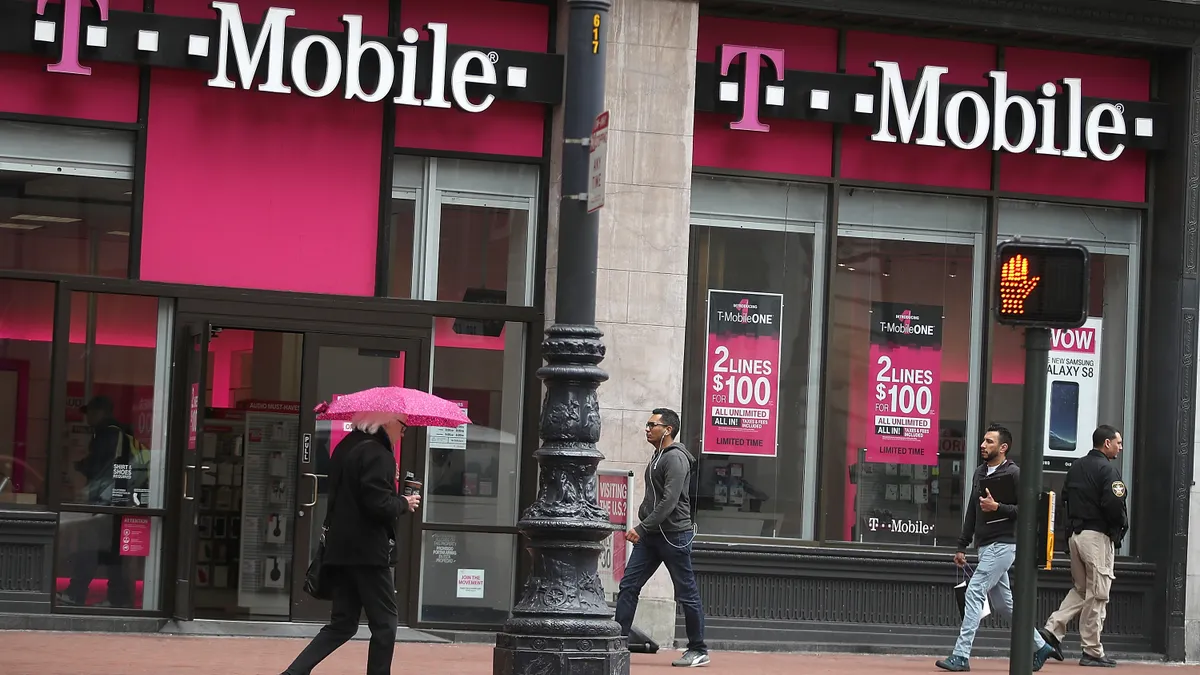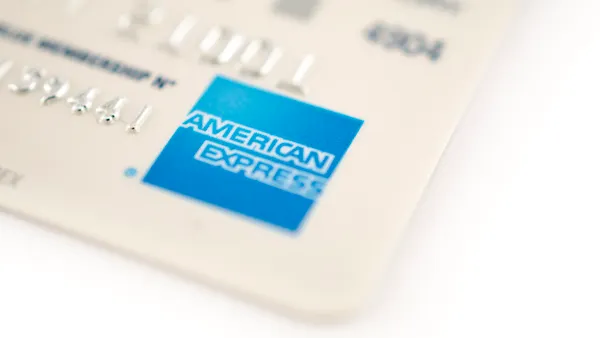T-Mobile and AT&T are following Verizon in incentivizing customers to make auto-pay bill payments using debit cards or bank accounts, as opposed to credit cards.
The three major U.S. telecommunications companies have told customers in recent months that they will only be able to keep all, or at least part of, their discounts under auto-pay programs if they switch to debit cards or bank account payments.
In July, T-Mobile notified its business and consumer account users that they would need to update their payment methods by Aug. 16 to debit cards or bank accounts if they wished to continue receiving a $15 discount under its autopay program.
“To continue receiving the $15 AutoPay discount, you must update your payment method to a debit card or a bank account,” T-Mobile emails to business-account customers said in late July and August. T-Mobile’s AutoPay discount is $5 per line for up to eight lines.
T-Mobile confirmed the changes to Payments Dive in an email, saying they will affect both business and consumer accounts. “We’re continuing to streamline payment methods and have made some changes to the AutoPay discount eligibility for consumers and businesses,” the telecom’s statement said. “The majority of our customers use their bank account or debit card for AutoPay and will continue to get a discount.”
Meanwhile, AT&T plans to lower, but not yet eliminate, the monthly discount its AutoPay customers will receive if they use a credit card, cutting that discount to $5 per phone line, down from $10, starting on Oct. 2, according to an AT&T support page. That includes consumers who have an AT&T Points Plus Card from Citi. To keep the AutoPay discount, customers need to update their payment type to a debit card or bank account.
In an email to Payments Dive, AT&T reiterated that pricing structure, saying that AutoPay customers using the -paperless billing plan will continue to receive a $10 discount when using a bank account or debit card. “Effective Oct. 2, we will reduce the AutoPay and Paperless Billing discount from $10 to $5 for wireless customers who pay with a credit card and are billed at the line level,” the carrier said.
Verizon was the first to require customers to link to a debit card or a bank account to receive a $10 monthly AutoPay discount with some phone plans, unless they use Verizon’s Visa Card. A 2022 USA Today report shows that the carrier has required this payment type for at least a year.
Verizon did not respond to questions emailed to the company by Payments Dive.
Analysts who cover the payments and telecom industries say the reason the carriers are pushing customers away from credit cards is so they can save money on the interchange fees paid to credit card networks.
“First and foremost, it is definitely to avoid the fees,” says Keith Snyder, senior industry analyst covering telecoms for CFRA Research. “That’s a direct hit to these companies’ bottom line,” he said. “It's an expense that they can now theoretically get rid of by forcing customers over to (debit cards).”
David Koning, senior research analyst covering financial technology, payments and services for the investment firm Robert W. Baird, says the debit interchange fee is 21 cents, plus a penny for fraud costs, plus five basis points, while the credit card interchange fee can range between 1.6% to 1.8%.
“On a $100 transaction that could be $1.60, a $1.80 instead of 30 cents,” Koning explained. “So that really is the difference.”
Some members of Congress have been exploring new curbs on credit card fee practices, with U.S. Sens. Dick Durbin (D-IL) and Roger Marshall (R-KS) proposing the Credit Card Competition Act earlier this year to rein in interchange, or “swipe,” fees. While the bill failed in the prior congressional session, it has attracted more Republican support this year.












